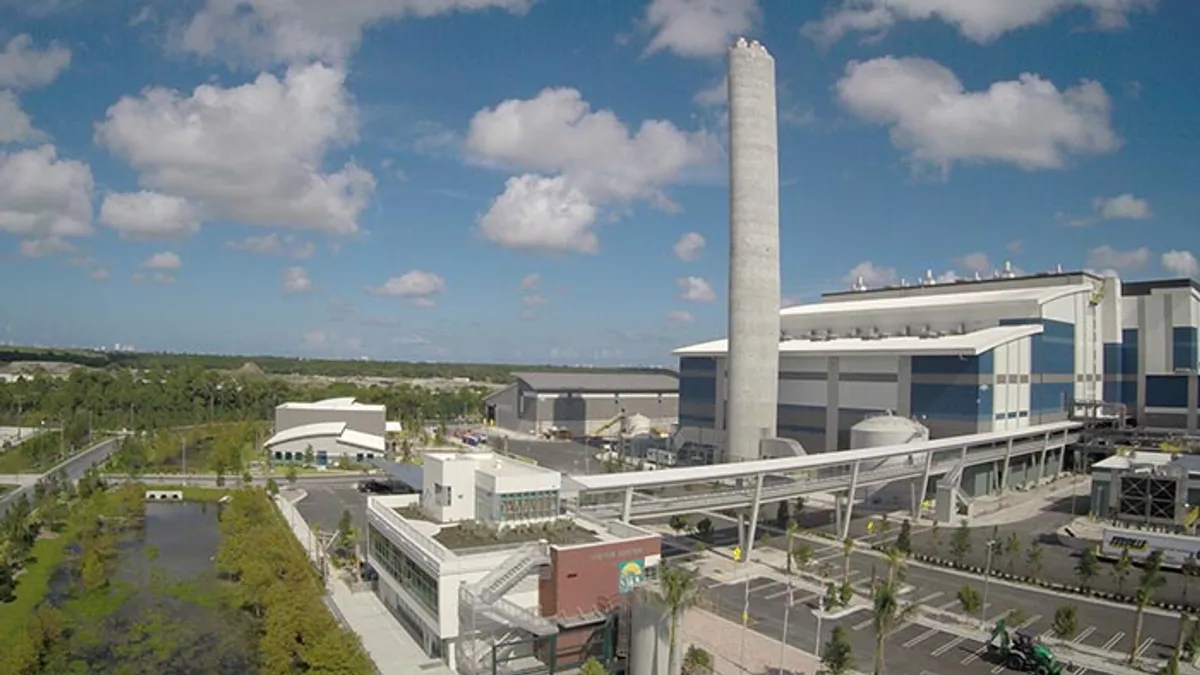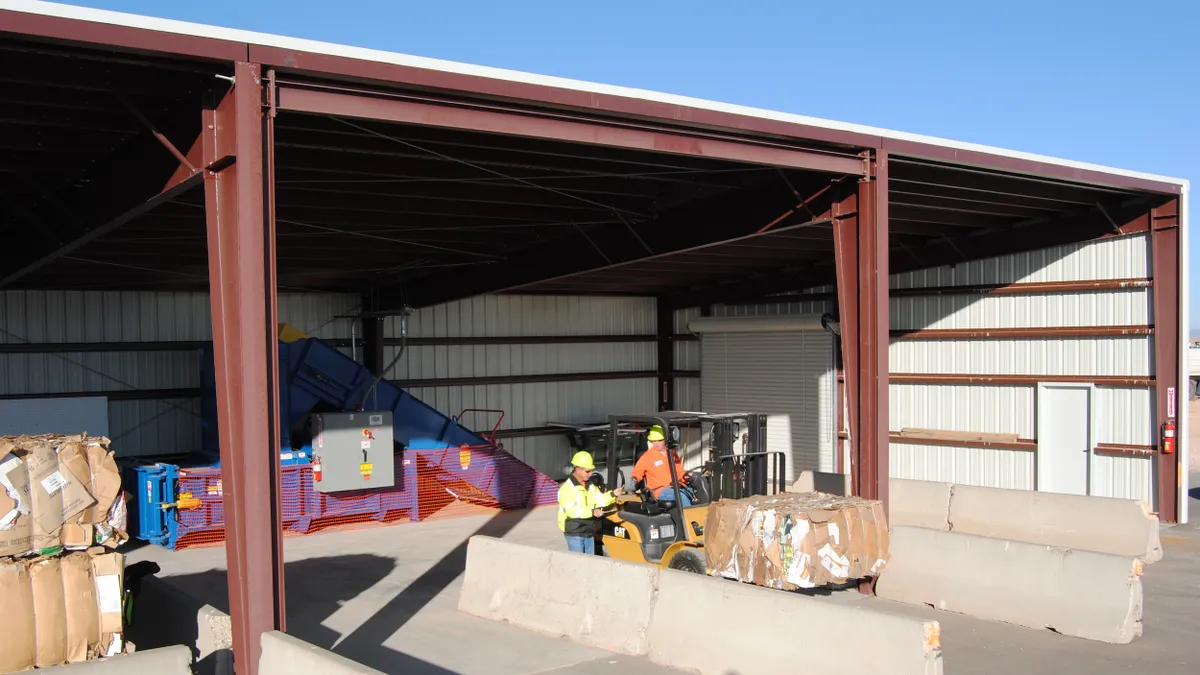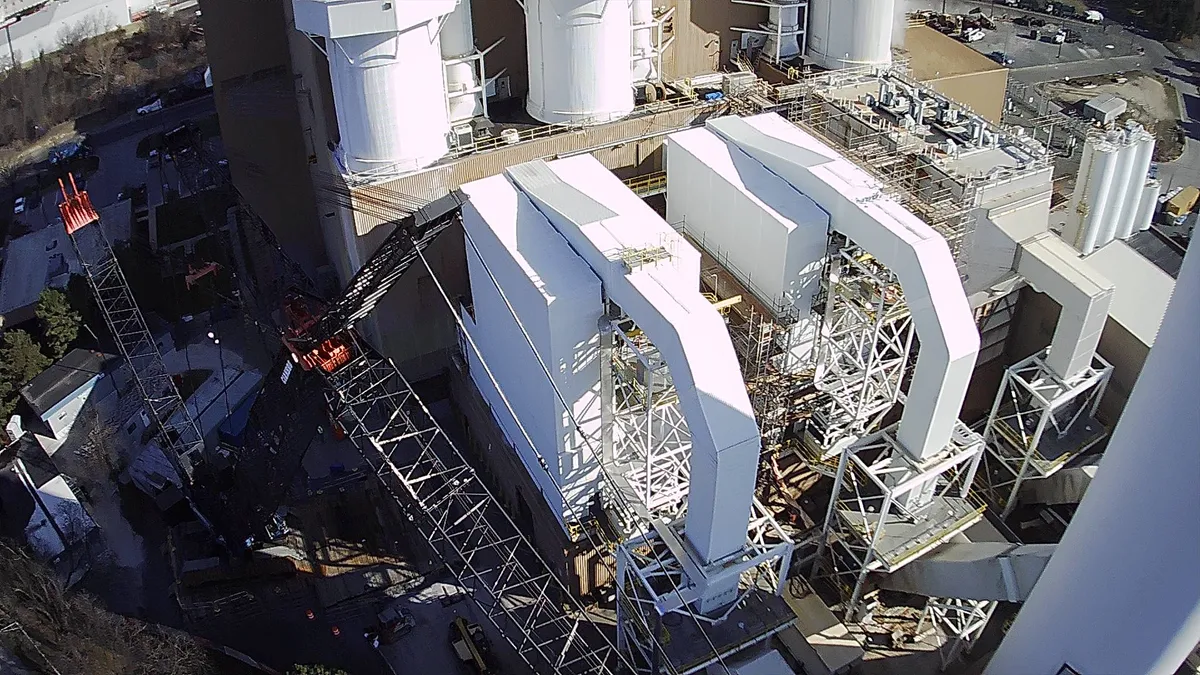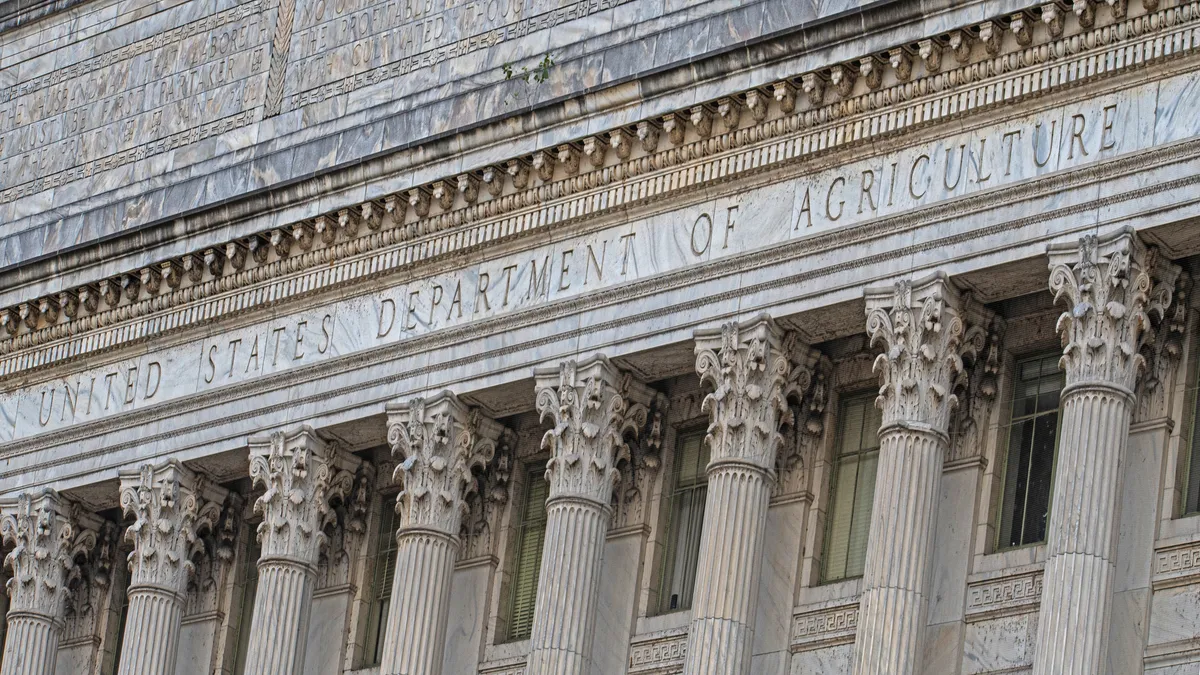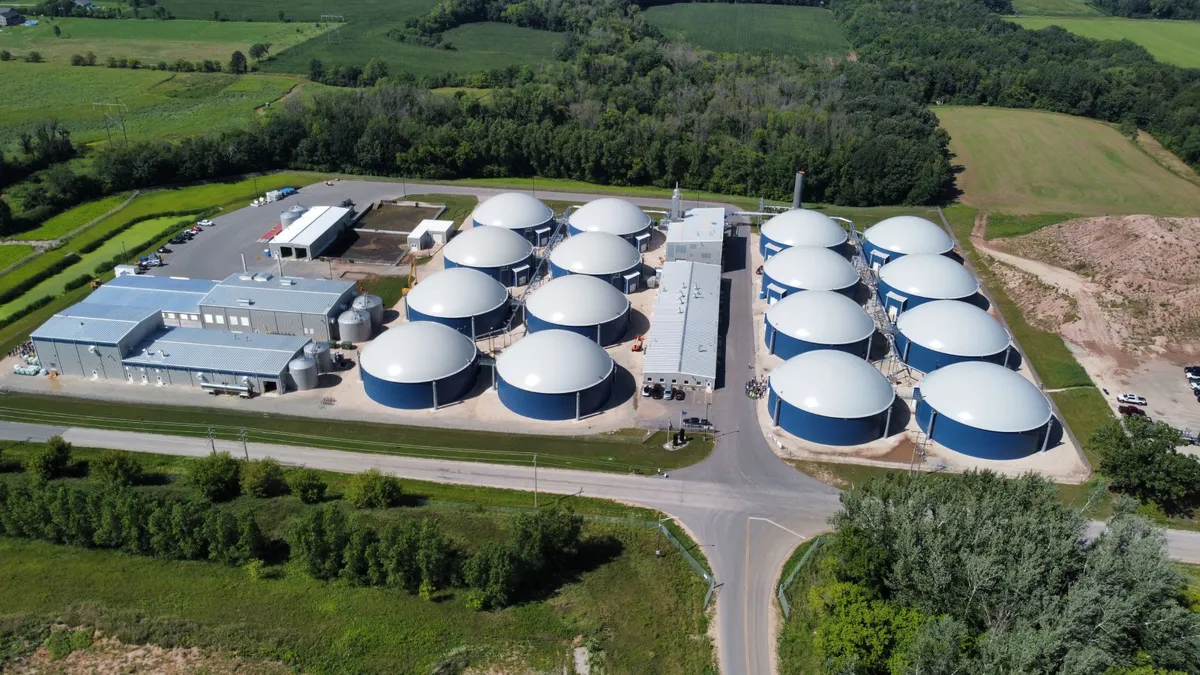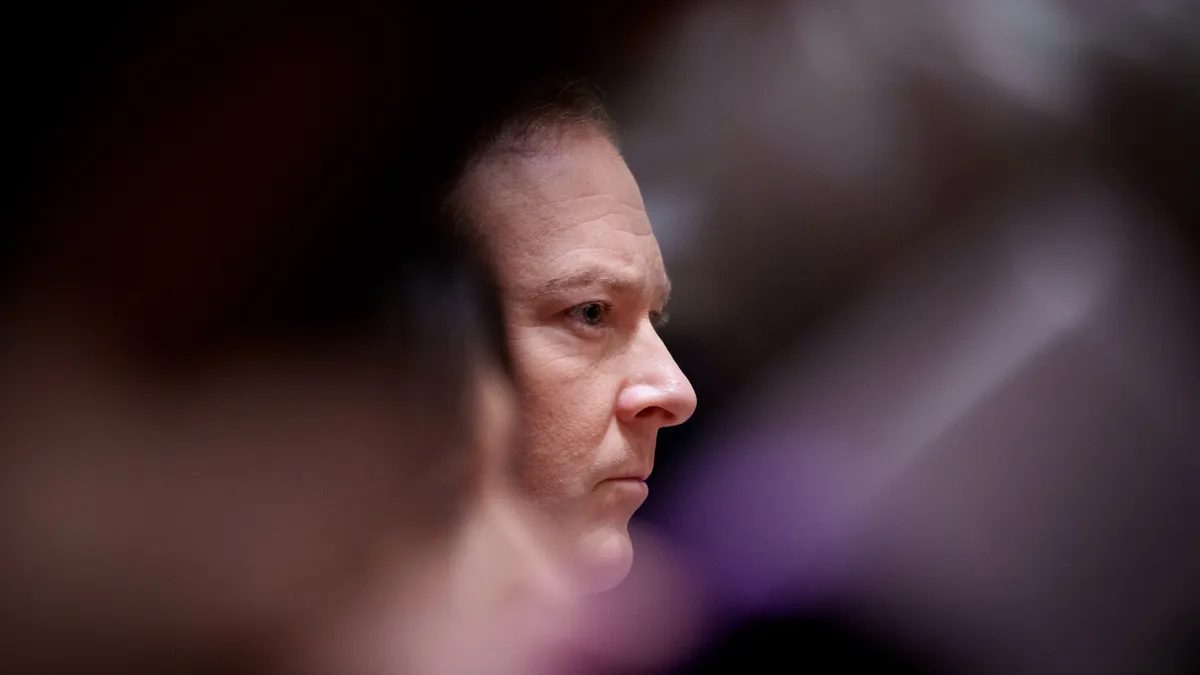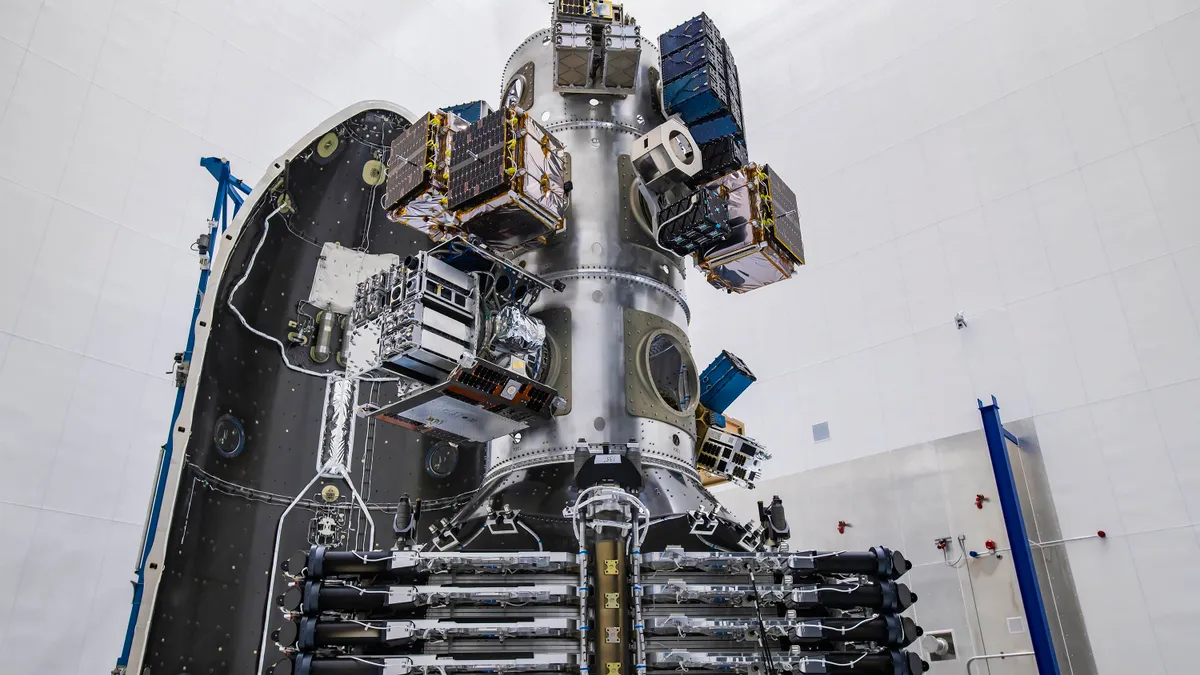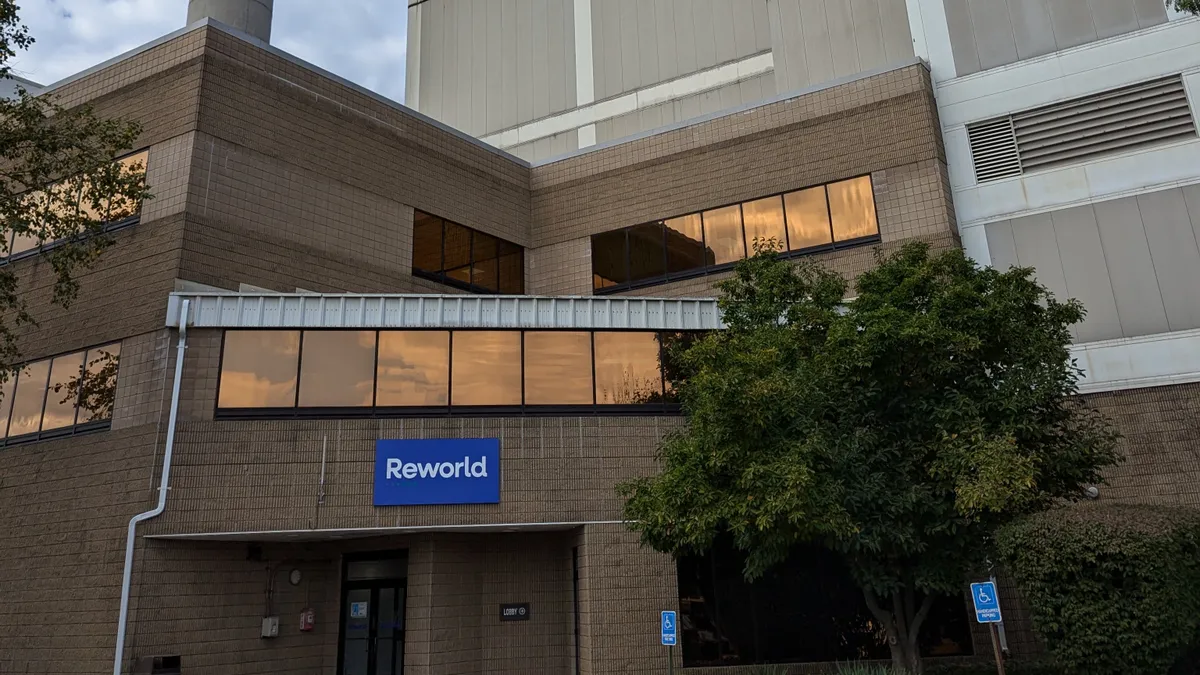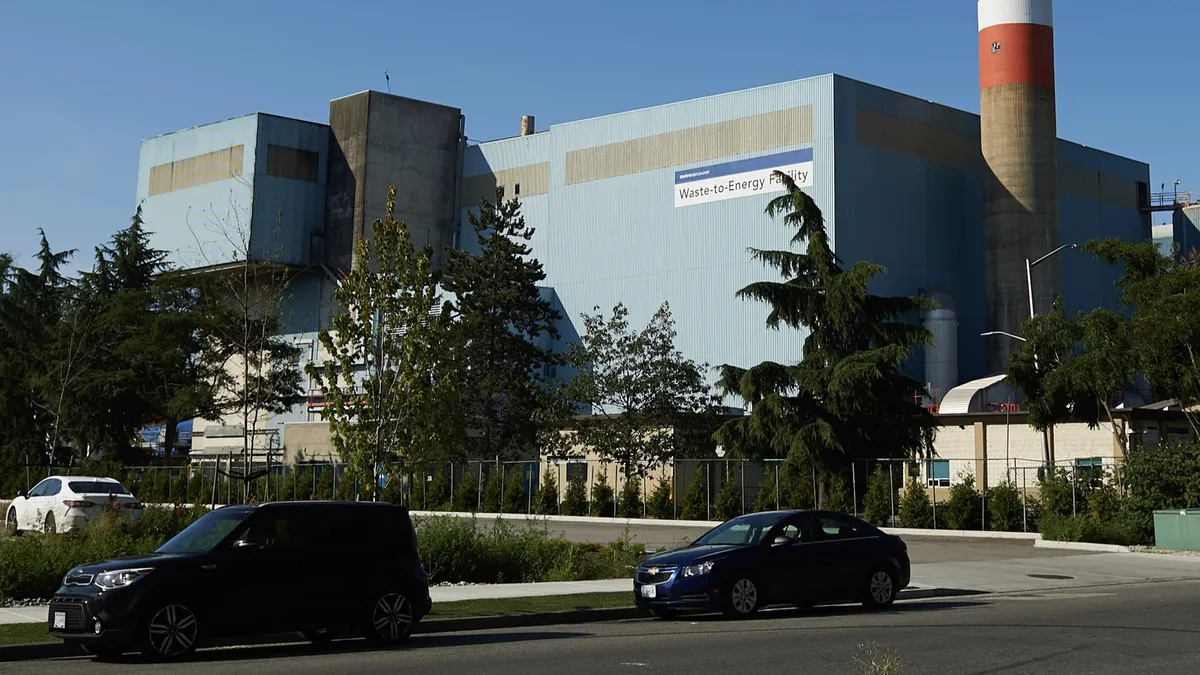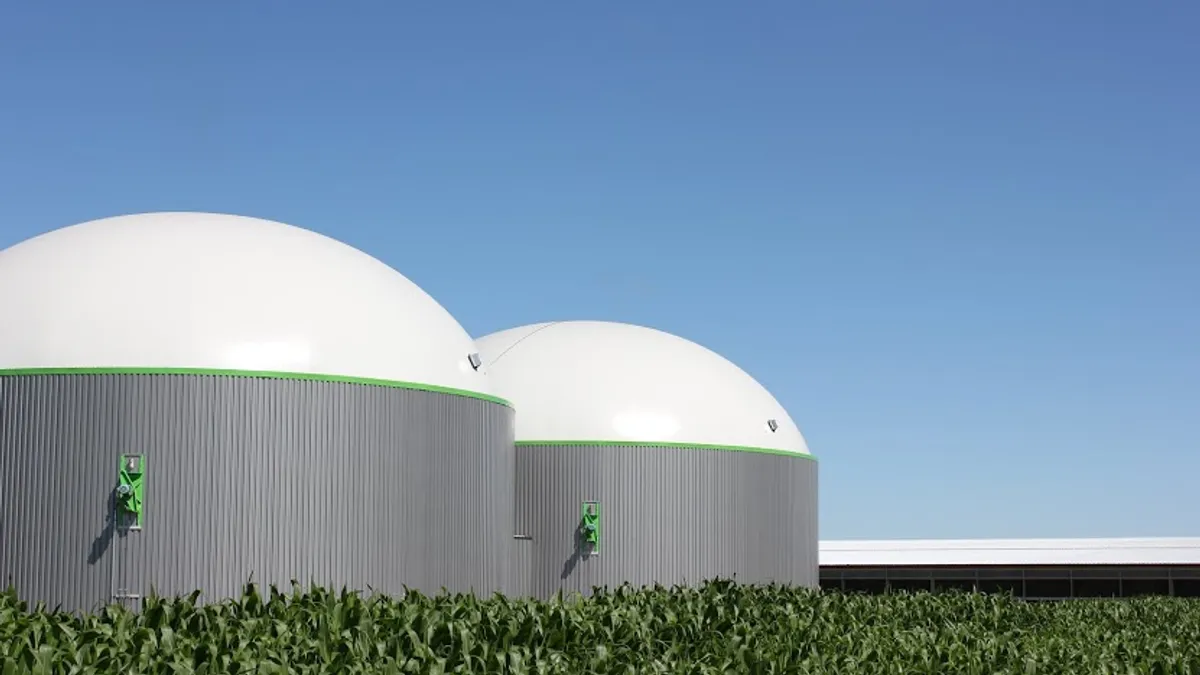More than 660 days after a fire destroyed Miami-Dade County’s waste incineration facility, the board of county commissioners again delayed a vote to select a site for a replacement facility. The indecision comes as other counties across Florida have advanced plans for their own WTE facilities in a state where the practice remains a popular method of managing waste.
The board was scheduled to vote on a site at its regular meeting Tuesday, but the item was pulled from the agenda at the last minute. County Mayor Daniella Levine Cava said her administration could use the additional time to study alternatives to waste-to-energy like more landfilling, citing pressure from outside groups.
“The reality is we create a lot of trash, more than double the national average,” Cava said. “It is a momentous decision, it has a long term impact on our community and it's important that we do the necessary due diligence on all environmental options.”
Environmental groups like Florida Rising have urged the county to adopt waste reduction, organics recycling and other zero waste initiatives rather than a new WTE facility since the Doral facility shut down. Eric Trump, son of President-elect Donald Trump, also recently weighed in against the recommendation to build a new plant in Doral. The Trump Organization owns a golf course and resort in Doral.
Cava’s administration has most recently recommended siting a WTE facility in Doral, at the site of the county’s now-defunct plant once operated by Covanta, a company now known as Reworld. She had previously recommended the site of a former airport in the northwest portion of the county, but that option has drawn the threat of legal action from neighboring towns. The county has also considered other sites.
The county board has held several meetings to discuss the issue, often drawing large crowds during public testimony, but has repeatedly postponed a final vote.
Joe Kilshiemer, executive director of the Florida Waste-to-Energy Coalition, said that outside attention has complicated matters for Miami-Dade County in a way that it hasn’t in other counties.
"The fire attracted a lot of attention and you've got a lot of groups that feel like they have a stake in this debate," Kilsheimer said.
Florida currently has more WTE facilities than any other state. The state government has been broadly supportive of the projects, which it considers to be a form of recycling. In 2022, the state also passed a law subsidizing power purchase agreements and incentivizing expansion of WTE facilities, though Kilsheimer said authorities have not begun developing incentives since the law’s passage.
The most recent WTE plant built in the United States is in Palm Beach County, Florida. The Palm Beach Renewable Energy Facility was built in 2015 next to an existing WTE facility. The county already is moving ahead with plans for another plant, which would replace the still-operational plant in the county that was built in 1989.
Palm Beach County's plans have been fueled by population growth. The solid waste authority projects the county will reach 1.8 million people by 2050 and generate nearly 3 million tons of waste a year by 2045 if current trends hold. The authority also predicts the county will need to permit a new landfill or add additional disposal capacity by 2054 even with a new WTE facility, The Palm Beach Post reported.
Ray Schauer, director of facility contract operations at the Solid Waste Authority of Palm Beach County, said the authority is still in the “very, very preliminary stages of planning” the new facility, which could cost $1.5 billion. But he noted that the last plant was permitted about 15 years ago without much opposition, and the technology remains preferable in a state where high water tables make adding new landfill capacity difficult.
“It's not just a question like in some other parts of the country where you dig a hole,” Schauer said. “Waste-to-energy just provides an elegant solution to solid waste management.”
Miami-Dade County officials have toured the Palm Beach County facility as they consider building a new plant. The county also hired engineering consulting firm Arcadis to study what technologies could go into a solid waste campus with waste-to-energy.
Chris Tillman, an engineer with Arcadis, said the Palm Beach facility was "night and day" compared to the technology used at the defunct Doral location during a hearing last year. Palm Beach’s mass burn combustion facility is the only one in the country that uses selective catalytic reduction, a more modern method of controlling nitrogen oxide emissions, Schauer said.
In Pasco County, a new WTE plant is already under construction. Last September, county commissioners unanimously approved design, build and operations agreements with Reworld worth up to $550 million. Reworld previously provided the same services to Pasco County for an earlier WTE facility built in 1988.
Kilsheimer said the Pasco project moved much more quickly than Miami-Dade's due to the outsized attention placed on the latter county and more vocal opposition.
"The Pasco expansion proceeded without a lot of public debate. There wasn't the same kind of angst,” he said.
Lee County officials are also considering building a new WTE facility. The board of county commissioners gave the county manager permission to begin exploring the possibility of partnering on a facility with neighboring Charlotte County last month, the Fort Myers News-Press reported.
Miami-Dade County has also considered partnering with its South Florida neighbors on a regional plan, though neighboring Broward County is too far behind in its own solid waste plans to help Miami-Dade in its decision-making process, county Chief Operations Officer Jimmy Morales said at the county meeting Tuesday.
The Miami-Dade Board of County Commissioners plans to meet in January to discuss solid waste issues as a whole, rather than narrowly focusing on the site for a new waste-to-energy plant. The board also plans to take a final vote on site selection at its second meeting in February.



